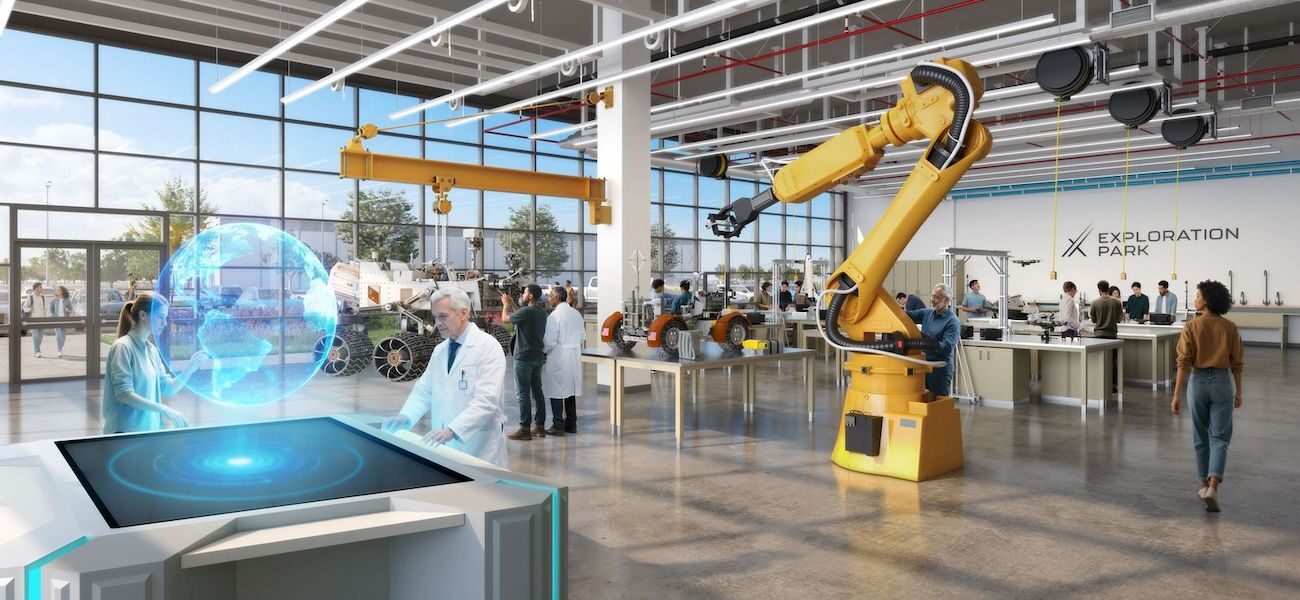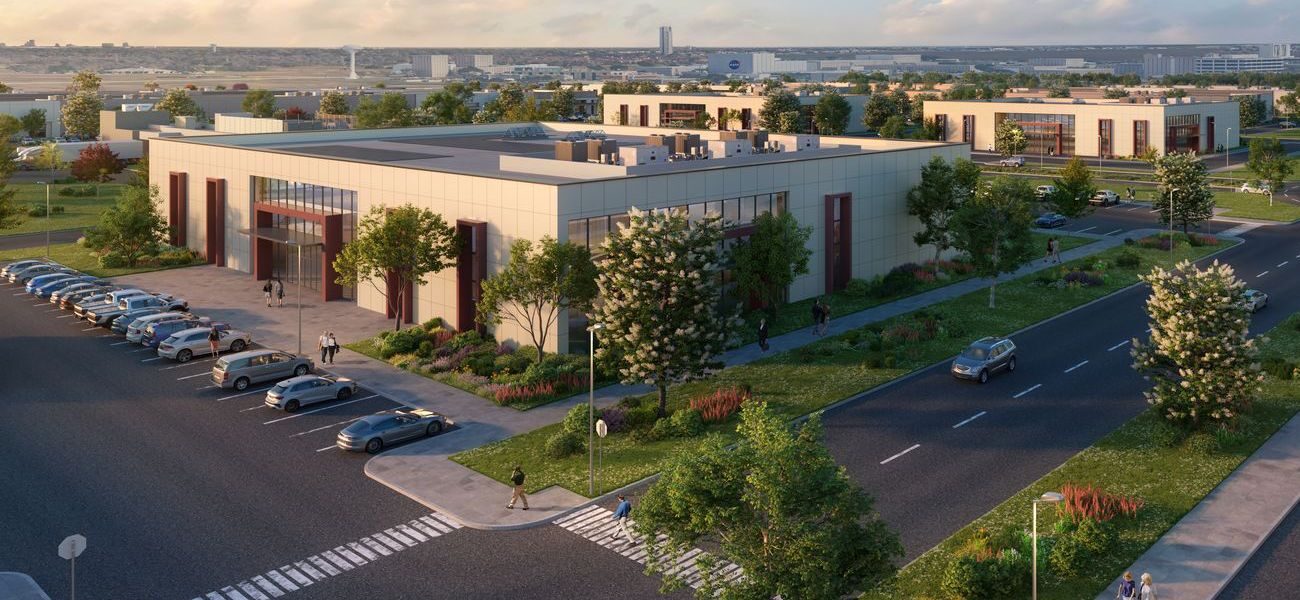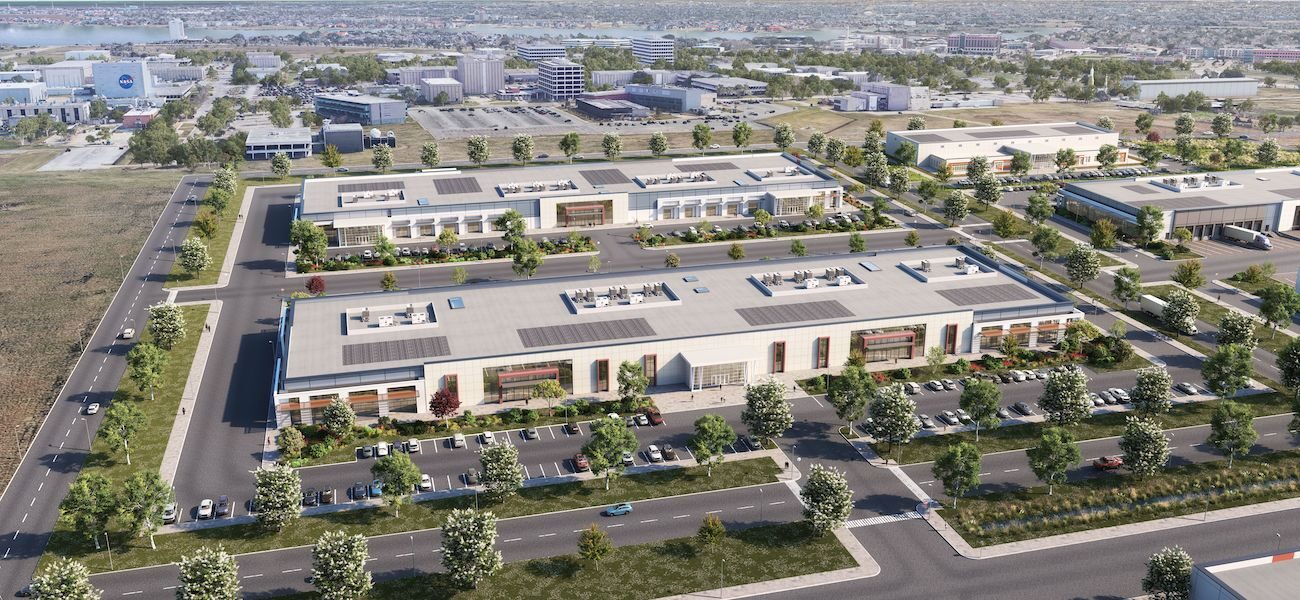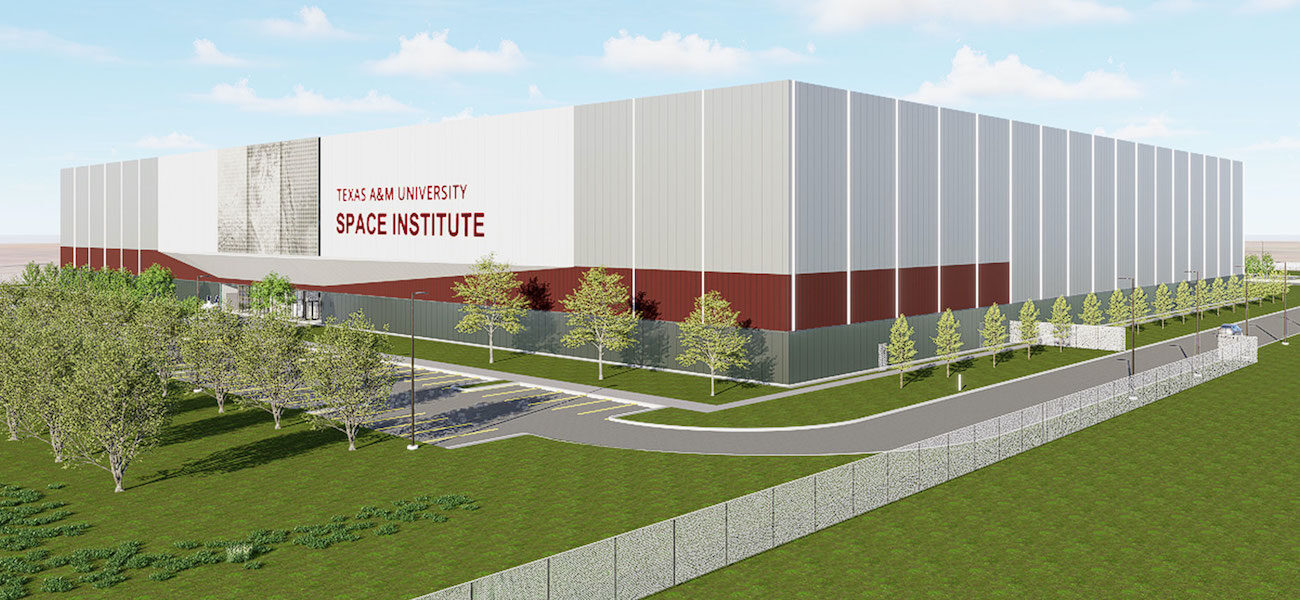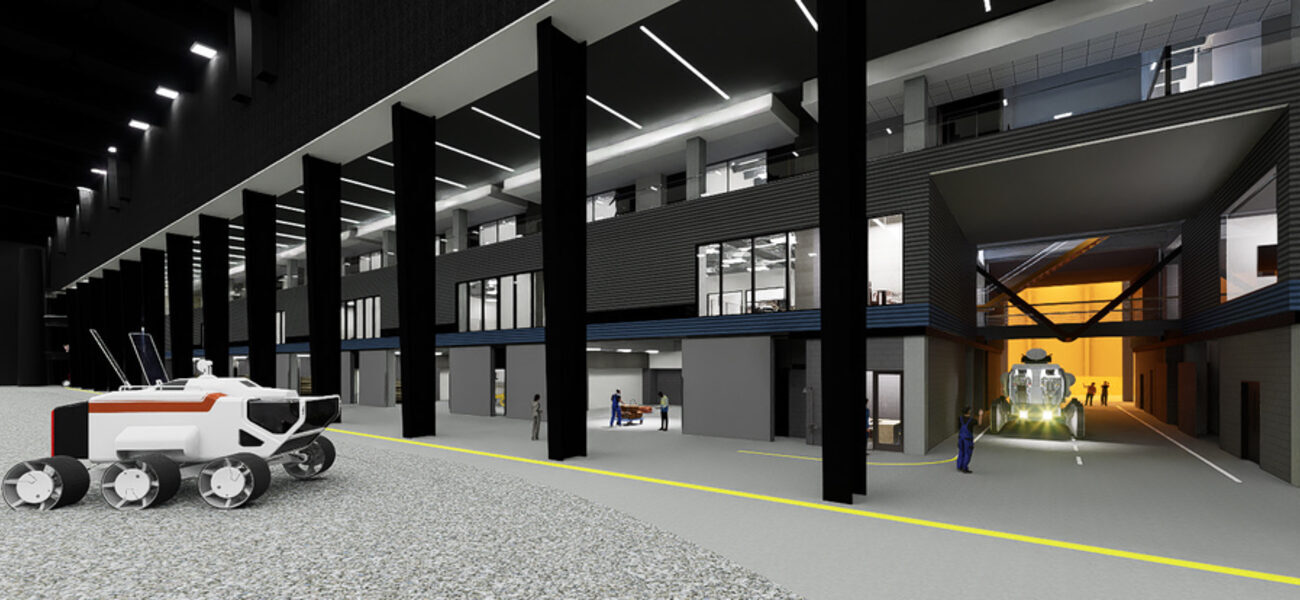The National Aeronautics and Space Administration (NASA) will begin construction in late 2025 on the first phase of Exploration Park in Houston. Developed by the American Center for Manufacturing and Innovation (ACMI) and Griffin Partners, the dynamic ecosystem will provide up to 22 facilities with leasable environments for commercial space innovation. Build-to-suit options will range from 50,000 sf to 250,000 sf, with multi-tenant structures offering footprints of 15,000 sf to 100,000 sf. The collaborative campus will rise on 207 acres just outside the access-controlled area of the Johnson Space Center to enhance synergies with government partners.
Designed by Gensler, this global center of excellence for human spaceflight will accommodate over 1.5 million sf of R&D labs, cleanrooms, advanced manufacturing venues, and offices. A walkable layout will promote interaction and knowledge exchange among occupants. Walter P Moore is serving as civil engineer and JLL is the leasing agent. Leveraging a flexible, phased delivery model, the project is slated for initial completion in the fourth quarter of 2026.
The centerpiece of Exploration Park will be Texas A&M University's Space Institute, which broke ground in November of 2024. Designed by Energy Architecture, the 400,000-sf facility is being built by Vaughn Construction with Gonzalez Shah Smith as MEP engineer, Gessner Engineering as structural engineer, and DataCom Design Group as technology and security engineer. Completion is anticipated in fall of 2026.
| Organization | Project Role |
|---|---|
|
ACMI Properties
|
Developer
|
|
Griffin Partners
|
Developer
|
|
Gensler
|
Lead Designer
|
|
Walter P Moore
|
Civil Engineer
|
|
Energy Architecture
|
Architect - Texas A&M Space Institute
|
|
Vaughn Construction
|
General Contractor - Texas A&M Space Institute
|
|
Gonzalez Shah Smith
|
MEP Engineer - Texas A&M Space Institute
|
|
Gessner Engineering
|
Structural Engineer - Texas A&M Space Institute
|
|
DataCom Design Group
|
Technology & Security Engineer - Texas A&M Space Institute
|
